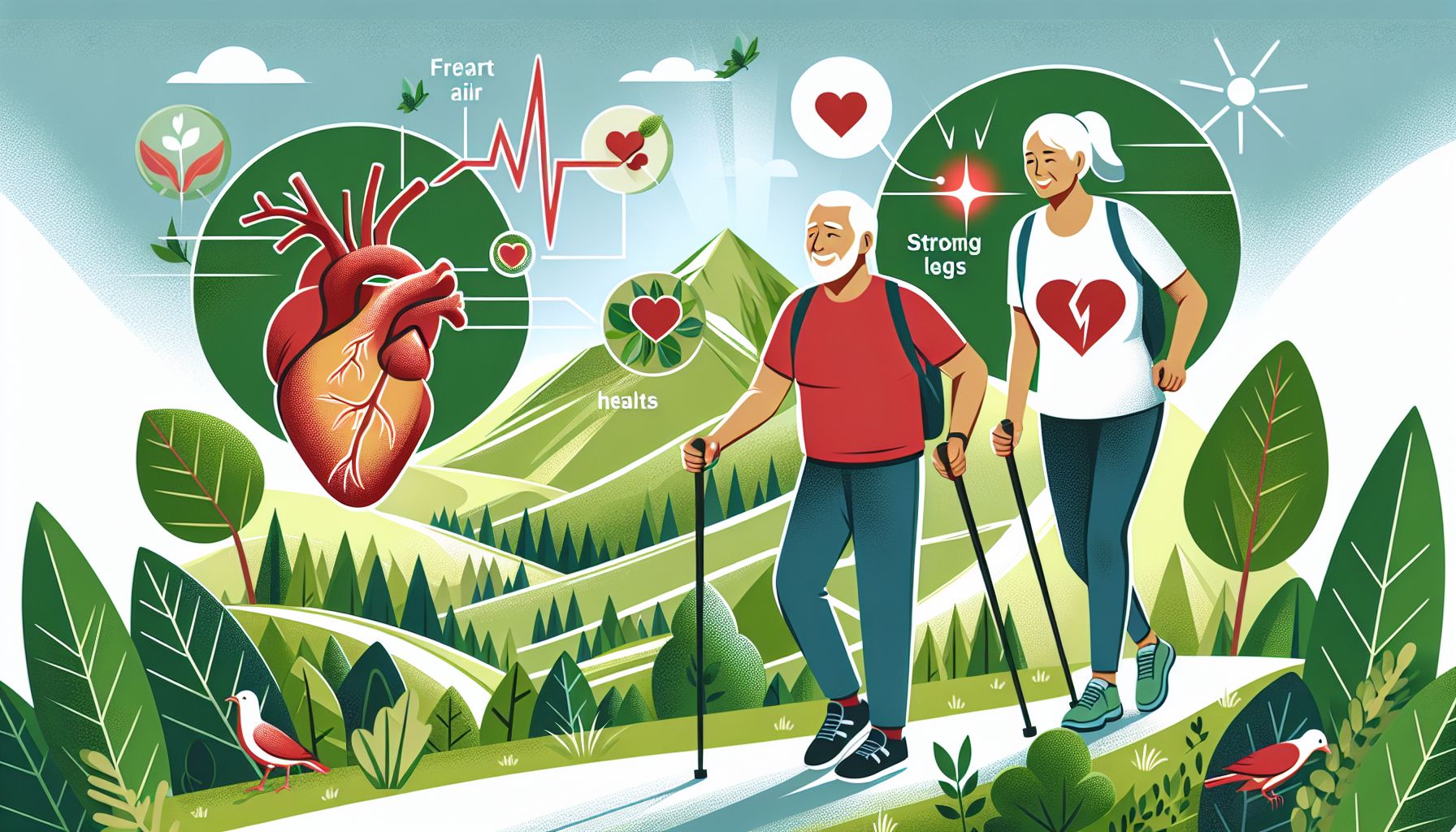The Benefits of Hiking for Elderly: Improving Cardio and Strengthening Legs
As we age, it becomes even more important to stay active and maintain good cardiovascular health. One excellent way for elderly individuals to achieve this is through hiking. Not only does hiking provide a great cardiovascular workout, but it also helps strengthen the legs, improves balance, and fosters a sense of well-being. In this article, we will explore the many benefits of hiking for the elderly, and why it is a fantastic activity for maintaining overall health and fitness.
Cardiovascular Benefits
Hiking is a fantastic way to get your heart rate up and improve cardiovascular health. The varying terrain and inclines encountered while hiking help to increase the intensity of the workout, making it an excellent form of aerobic exercise. Regular hiking can help improve circulation, lower blood pressure, and reduce the risk of heart disease. For elderly individuals looking to improve their cardiovascular health, hiking is a low-impact and enjoyable way to achieve this goal.
Strengthening Leg Muscles
One of the primary benefits of hiking for the elderly is the opportunity to strengthen the leg muscles. Uphill climbs and navigating uneven terrain help to work the quadriceps, hamstrings, and calf muscles, leading to improved strength and stability. Strong leg muscles are essential for maintaining balance and preventing falls, which are common concerns for older adults. By regularly hiking, elderly individuals can help maintain their independence and mobility as they age.
Improving Balance and Coordination
In addition to strengthening the legs, hiking also helps to improve balance and coordination. The uneven surfaces encountered while hiking require the body to constantly adjust and react, helping to train the proprioceptive system and improve overall balance. Better balance and coordination can help reduce the risk of falls and injuries, which are significant concerns for elderly individuals. By regularly hiking, older adults can improve their overall stability and confidence in their movements.
Mental Health Benefits
Hiking is not only beneficial for physical health but can also have a positive impact on mental well-being. Spending time in nature has been shown to reduce stress, anxiety, and depression, and improve overall mood. The fresh air, scenic views, and sense of accomplishment that come with hiking can help boost self-esteem and provide a mental break from daily stressors. For elderly individuals looking to improve their mental health and overall well-being, hiking offers a fantastic opportunity to connect with nature and improve mental clarity.
Building Healthy Relationships
Hiking is also an excellent way for elderly individuals to build and maintain healthy relationships. Whether hiking with friends, family members, or in a group setting, the social aspect of hiking can provide a sense of community and support. Research has shown that social connections are essential for maintaining mental and emotional well-being, especially as we age. By regularly hiking with others, elderly individuals can enjoy the benefits of physical activity while also fostering meaningful relationships and social connections.
Conclusion
In conclusion, hiking is a fantastic activity for elderly individuals looking to improve their cardiovascular health, strengthen their legs, and enhance their overall well-being. The varying terrain, uphill climbs, and uneven surfaces encountered while hiking provide a challenging yet enjoyable workout that can have numerous benefits for older adults. By taking advantage of the physical, mental, and social benefits of hiking, elderly individuals can improve their quality of life and maintain their health and fitness as they age. So grab your hiking boots, hit the trails, and start reaping the many benefits that hiking has to offer.
